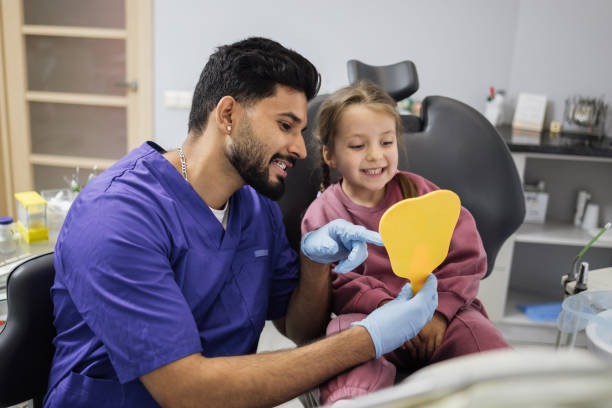Alright, so you’ve just had oral surgery. Maybe it was a wisdom tooth extraction, or maybe it was a more complicated procedure. Either way, it’s crucial to understand the follow-up care that will ensure a swift and smooth recovery. The following guide will walk you through what you need to know step by step.
Initial Recovery Stages
Day of Surgery: What to Expect
Right after the operation, you’re likely to feel groggy from the anesthesia. Your mouth might be numb, but it’s important to stick to your dentist’s post-op instructions religiously. Here are a few things you’ll need to do:
-
Rest: Avoid strenuous activities to help your body focus on healing.
-
Ice Pack: Apply an ice pack to your face to reduce swelling. Use it for 15 minutes on and 15 minutes off.
-
Medication: Take prescribed medications on time. These could include painkillers and antibiotics.
-
Dressings: Replace gauze pads as directed to control bleeding.
First 24 Hours: Building Foundations for Recovery
The first day is pivotal in setting the pace for the rest of your recovery. Follow these tips:
-
Avoid Spitting: This can disrupt the clots forming in your wounds.
-
Diet: Stick to soft foods like yogurt, applesauce, and soups. Avoid hot and spicy foods.
-
Hydration: Drink plenty of fluids, but steer clear of straws to avoid dislodging clots.
Managing Pain and Swelling
Days 2-3: Monitoring Symptoms
The pain and swelling often peak around day two or three. Here’s what you should do:
-
Medication: Continue taking your pain medication as prescribed.
-
Warm Compress: Switch from ice to a warm compress after 48 hours to reduce swelling.
Recognizing Complications Early
Being vigilant is crucial. If you experience excessive bleeding, high fever, or increasing pain, contact your Harrison dentist immediately. Early intervention can prevent minor issues from becoming bigger problems.
Maintaining Oral Hygiene
Keeping Your Mouth Clean
Maintaining excellent oral hygiene can prevent infections and speed up healing.
-
Rinsing: Use a saltwater solution to rinse your mouth gently but not too vigorously.
-
Brushing: Brush your teeth carefully, avoiding the surgical site.
-
Avoid Commercial Mouthwash: These can be too harsh and delay the healing process.
When to Resume Normal Oral Hygiene Routine
Gradually return to your normal oral hygiene routine over the course of a week. Those who have undergone cosmetic dentistry procedures should be especially careful around the surgical area to avoid any unnecessary disturbance.
Diet and Nutrition
Foods to Embrace
Nutrition plays a massive role in your recovery. Stick to:
-
Soft foods like mashed potatoes, smoothies, and scrambled eggs.
-
Cold foods like ice cream and yogurt can soothe the surgical site.
-
Nutrient-dense foods like avocados and hummus are good for vital vitamins and minerals.
Foods to Avoid
Steer clear of foods that might irritate or disrupt the surgical site:
-
Crunchy and hard foods like nuts and chips.
-
Spicy and acidic foods that can cause discomfort.
-
Hot foods and drinks can aggravate swelling and pain.
Physical Activity and Lifestyle
When to Resume Exercise
While you might be eager to return to your exercise routine, it’s crucial to take it easy. Typically, light activities like walking can be resumed after 3-4 days, but heavier exercises should be postponed for at least a week.
Sleeping Position
Try to keep your head elevated while sleeping to reduce swelling and prevent additional bleeding.
Signs You’re Healing Properly
What to Look For
It’s reassuring to know your recovery is on track. Here are some signs of proper healing:
-
Reduction in swelling over 3-4 days.
-
Decreasing pain levels is managed with less medication.
-
Control of minor bleeding and the formation of clots.
Benefits of Regular Check-Ups
Visiting your dentist for follow-up appointments ensures that everything is healing as it should. These appointments can catch any potential issues early and adjust your care plan as needed.
Some people even look for Harrison oral surgery experts due to their renowned care plans and attentive follow-up, which make the recovery process as smooth as possible.
Long-Term Care
Avoiding Complications
Even after the initial recovery period, it’s important to be mindful of the long-term care of your teeth and gums:
-
Maintain good oral hygiene.
-
Stay aware of any changes or discomfort in your mouth.
Embracing Preventative Measures
Involving preventive care in your routine is crucial. This can include regular dental check-ups and professional cleanings.
Incorporating Professional Advice
The Role of Your Dentist
Your dentist is your best ally in this process. They can provide personalized advice tailored to your specific needs and circumstances.
Trust the Process
Following your dentist’s instructions carefully can make all the difference in your recovery experience. Trust in their expertise to guide you through the process effectively.
Final Thoughts
Everyone’s body is different, and so is every recovery journey. It’s essential to listen to your body and adapt the general advice as needed. If you have any concerns, always contact your healthcare provider for guidance. So, there you have it—a comprehensive yet simple guide to follow-up care after oral surgery. Make sure to follow these steps, and you’ll be on your way to a quick and efficient recovery.





